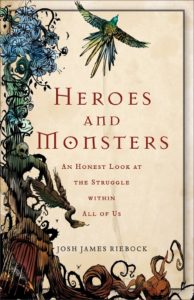This article is part of a progression
In the first article of this series, we discussed how women are treated differently than men when it comes to sex and purity. The second article addressed the dangers of expecting people to wait until marriage to engage in sex. This final article will examine whether or not the Bible requires one to wait until marriage. This will be the longest post in the series as it will be more academic than the others. Please bear with me as we discuss this topic. Also, I will be having two friends do a follow-up in the next few weeks where they give counterpoints and arguments to what I’m presenting here.
The issue we’re addressing today is that which is typically taught by the church:
The Bible says to wait until marriage to engage in sexual activities.
The question we’re asking is: does it actually say that?[note]if anyone has found a verse that states that outright, please send it to me because I can’t find it.[/note]
It seems that the Bible does not explicitly say to wait until marriage to have sexual relations, so what does it say?
We’ll start with the NT. The authors address “sexual immorality” (often also interpreted as “fornication” and “adultery”[note]We’re not discussing “adultery” itself today because we all have an understanding of what that is.)[/note] 26 times. The problem with “sexual immorality” is that it is ambiguous. It does not state what it is. It is translated into various things. The greek word is porneia,[note]https://www.blueletterbible.org/lang/lexicon/lexicon.cfm?Strongs=G4202&t=KJV)), which can mean anything from adultery, sexual intercourse with close relatives((a reference to the laws in Leviticus which will we discuss later[/note] sexual intercourse with a divorced person, or a metaphor for idolatry.
Of the 26 uses, 3 are metaphorically about idolatry,[note]Acts 15:20,29; 21:29[/note] 10 are more general (lumping it within a list of sins including idolatry, comparing it to idolatry, and discussing the fall of Babylon due to their “immorality”)[note]Matthew 15:19; Mak 7:21; Romans 1:29; Colossians 3:5; Revelation 9:21; 2:21; 14:8; 17:2,4; 19:2[/note], and 10 discuss sex exclusively and explicitly. These include:
- Matthew 5:32 and 19:9- porneia is given as a legitimate reason for divorce
- John 8:41- the people of Israel are stating they are legitimate children of God, and not illegitimate (or products of porneia)
- 1 Corinthians 5:1- discussing a man having sex with his father’s wife
- 1 Corinthians 6:18- porneia is a sin against self[note]This passage (1 Corinthians 6:12-20) may be addressing Temple Prostitution specifically (Rosser, Brian S. “Temple Prostitution in 1 Corinthians 6:12-20.” Novum Testamentum 40, no. 4 (October 1998): 336-351. ATLA Religion Database with ATLASerials, EBSCOhost (accessed February 21, 2016).)[/note]
- 1 Corinthians 7:2- prevent porneia by only having sex with one’s husband/wife
- Galatians 5:19- porneia is listed as a sin of the flesh
- Ephesians 5:3- let porneia not be named among you
- 1 Thessalonians 4:3- refrain from porneia in order to remain holy
The problem with relating these to sex before marriage is that none of them state it. Most are rather ambiguous and refer to sexual relations once one is married.[note]Ephesians 5:3 is the only one that does not, but still is simply a list of things that should not be found in God’s people and gives no indication of what is intended by porneia.[/note]
Before we go further with porneia let’s look at the noun version of the word- pornos.[note]https://www.blueletterbible.org/lang/lexicon/lexicon.cfm?Strongs=G4205&t=KJV[note] Typically translated as “fornicator” or “whoremonger” it is used exclusively to mean a man who sells himself for money. Interesting that we view porneia as various forms of sexual immorality (including sex before marriage), but the noun version is specific in its usage. But, since this isn’t conclusive, let’s continue to address what might be meant by porneia.
Perhaps the best clue we find is in 1 Thessalonians 4:3. The passage continues:
God’s will is for you to be holy, so stay away from all sexual sin. Then each of you will control his own body and live in holiness and honor—not in lustful passion like the pagans who do not know God and his ways. Never harm or cheat a fellow believer in this matter by violating his wife, for the Lord avenges all such sins, as we have solemnly warned you before. God has called us to live holy lives, not impure lives. (4-7 NLT)
This gives us a few pieces of information we can move forward with.
- “live in holiness and honor”
- “never harm or cheat a fellow believer…”
- “holy lives, not impure lives”
A lot of these words have lost their meaning in today’s age. For instance, “honor” means little to most people. But, in the time of writing, honor and shame were an integral part of society. Doing certain things brought shame on you and your family. One’s reputation in society was of utmost importance. Honor/Shame societies were the norm in this time. Anything that brought shame was looked down upon. Couple this with the patriarchal society, where men are of higher value and women are often seen as property, and you’re left with this:
One man marries a woman
His wife now becomes “his”
His friend has sex with his wife
His wife is now impure, as is his friend
But, because his wife is impure, he has been shamed.
Because his wife had sex with another man, he is now shamed and looked down upon in society. The Gospel is constantly clear about valuing and affirming people, rather than shaming them (even if they’ve done things they shouldn’t).[note]for instance, Jesus at the well in John 4[/note] So we see how having sex with another’s wife is leading them into impure lives, harming a fellow believer, and bringing shame upon pretty much everyone involved. But what about holiness?
That brings us to the OT where we have lists of prohibited sexual activities in both Leviticus 18 and Deuteronomy 22:13-15. Leviticus is most oft-used and the more extensive of the two, so we will focus on that one.[note]Deut. is more of the same with fewer examples.[/note]
When we look at the beginning of the section on Forbidden Sexual Practices, we see first and foremost an introduction where God tells the people not to be like the people of Egypt or Canaan, the places from which he is taking them. This tells us that the practices that follow are things that were present in the other societies. So God is asking them to refrain from these practices that other countries do. Okay. That makes sense. But what are these practices?
Save homosexuality, bestiality, having sex while a woman is on her period, and offering a child to a pagan god, every. single. one. is about having sex wither either a relative or someone who is already married. Don’t believe me? Have a look for yourself. None of them forbid sex outside of marriage for two people who are not married and not related. Furthermore, many scholars believe that this passage is in a section relating to not practicing idolatry in ways that other near-eastern religions did. (Hence the reference to offering your child to a pagan deity). And it seems that the curse Cannan is under is related directly to incest. [note]Bassett, Frederick W. 1971. “Noah’s nakedness and the curse of Canaan: a case of incest?.” Vetus Testamentum 21, no. 2: 232-237. ATLA Religion Database with ATLASerials, EBSCOhost (accessed February 21, 2016).[/note] The one outlier is the restriction on having sex with a woman on her period. But even that is not about sex before marriage.
So now we’re in a conundrum. We have no passages that tell us that sex before marriage is a sin. Every passage seems to be addressing sex with a relative or someone who is already married(or betrothed). Where then do we go from here?
It should be noted that there are no Biblical requirements for marriage. There are ceremonies present throughout the Bible, but not once does the Bible indicate what marriage is defined as. Some view marriages as when you have sex. Others when two people commit themselves to another. The only place that gives any form of definition of marriage is in Genesis
This explains why a man leaves his father and mother and is joined to his wife, and the two are united into one. (2:24 NLT)
Marriage, then, could be as simple as uniting with someone else. But most Christians wouldn’t allow this definition because it’s too loose. Where is the line drawn? How is it defined that they’re “united into one”? When does that happen? Nobody really knows.
So, not only does the Bible never state that sex before marriage is explicitly wrong, it also never even tells us what marriage is. But the Bible does tell us one thing: God Loves Sex. He made man to engage in intercourse and enjoy it. And we see this most notably in the Song of Solomon. We see sex and sexuality beautifully explored and celebrated in this work. And there are two notable things about it.
- It is never stated that the lovers are married. Not once. Most I’ve read on it states they’re lovers-to-be-married, but in that instance they do a lot of sexual things before they’re actually married. Wouldn’t that be wrong if God commanded sex to be saved for marriage?
- Contrary to modern sexual teaching within the church, it celebrates the sexuality of the woman.
- “How should the Song of Songs be read? As that rarest of biblical texts, one
that gives voice to female desire in the context of a sexual relationship characterized
by equality and mutuality rather than domination and submission? Or as
yet another vehicle for male pornographic fantasy and sexual aggression? Attempting
to shift the (dualistic) terms of this burgeoning debate on the Song,
this article explicitly situates itself at the intersection of feminist and queer theories,
focusing especially on s/m eroticism as a site where these theories forcefully
collide and delicately collude, and arguing that feminist and queer politics
can ill-afford to exclude each other.”[note]Burrus, Virginia, and Stephen D Moore. “Unsafe sex: feminism, pornography, and the Song of Songs.” Biblical Interpretation 11, no. 1 (2003 2003): 24-52. ATLA Religion Database with ATLASerials, EBSCOhost (accessed February 21, 2016).[/note]- The purpose of this article is to discuss whether the abuse scenarios in Song of Solomon are that of men, that of the woman fearing said things, or that of the woman embracing a sexual relationship built on slave/master relations. In any event, we see elements the woman’s sexual desire throughout the book.
- “One would expect that the overt sexual character of the Song of Songs would lend itself to an analysis according to the gender-defined categories of honor and shame. It does not. In fact, the contrary is true. A close reading of the poems reveals social relationships that are anomalous, if the honor/shame model is the norm.”[note]Bergant, Dianne. 1994. “‘My Beloved Is Mine and I Am His’ (Song 2:16): The Song of Songs and Honor and Shame.” Semeia 68, 23-40. ATLA Religion Database with ATLASerials, EBSCOhost (accessed February 21, 2016).[/note]
- This author views the Song of Solomon as a break from the honor/shame norm that allows women to have just as much power in the relationship (even in the sexual realm) as the man.
- “How should the Song of Songs be read? As that rarest of biblical texts, one
While we’ve been unable to find a specific passage that states sex should be reserved for marriage as the majority of churches teach, we’ve seen:
- Sex with a relative is wrong
- Sex with someone who is already married is (maybe) wrong
- Selling yourself for money is (maybe) wrong
- Engaging in sexual practices that have idolatrous roots is wrong
- God loves sex
- Women should be just as celebrated and important in the bedroom as the man
What does all this come down to? Honestly, something good that can be taken from the honor/shame society: anything that hurts another emotionally or physically is wrong. Any sexual act[note]or any act in general[/note] that treats someone as less important or less than in any way is wrong. Does sex before marriage do this? Not if it’s between two consenting, of age, individuals who are doing it for mutually agreeable reasons (be it that they like each other or they just want the pleasure).






2 Responses
One thing I have heard is that the word “porneia” was used to refer to premarital sex in other (nonBiblical) ancient sources. I haven’t looked enough to see if this is true, however. Do you think that would change things?
I’d be interested in seeing where you find that. I’m finding that porneia was not a common word in antiquity. Also, outside the Biblical context, it seemed to be used primarily as someone who sold themselves (much like pornos was a noun for prostitute.) Which seems to mean that only the person selling themselves was committing porneia, and not someone having sex with a prostitute.
However, as we know, words change meanings and people adapt them for different things. The prophets linked sexual adultery with spiritual idolatry, and as time moved on, porneia, in the Biblical texts, was condensed to mean sexual practices that were permitted outside the church (like prostitution, adultery, incest, etc.) that the Church did not condone.
However, using that to define porneia as either pre-marital sex (or even homosexuality) is a stretch. In order for us to best understand what they used porneia to describe, we have to understand what sexual practices were forbidden for the Israelites and early Christians. And, as we examined in Leviticus, it mentions not pre-marital sex.
Comments are closed.